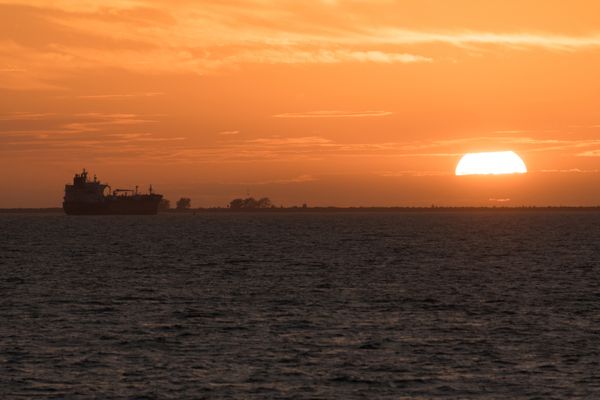A thorough understanding of international waters laws is essential for those working on oil rigs, ships, and other maritime facilities in Texas. This understanding is essential for navigating the complexities of their rights and workplace safety.
Keep reading to learn the fundamental legal frameworks that govern work on the high seas and ensure workers are well-informed and protected. At Havens & Associates, our Houston offshore accident attorneys are here to protect your rights and advocate for full compensation. Call (713) 955-2215 or contact us online to schedule a free consultation today.

What are international waters?
International waters, also known as the high seas, begin at least 12 nautical miles from the coastline of any state and extend outward. Within this zone, no single country’s laws have automatic authority, creating a unique legal environment for those working on the open sea.
Key legal frameworks affecting offshore workers
1. The United Nations Convention on the Law of the Sea (UNCLOS)
UNCLOS is the primary international treaty that outlines the rights and responsibilities of nations regarding their use of the world’s oceans, establishing guidelines for businesses, the environment, and the management of marine natural resources. For offshore workers, UNCLOS provides a basic legal framework regarding safety and environmental protocols on international waters.
2. Maritime Labour Convention (MLC, 2006)
Adopted by the International Labour Organization, the MLC ensures that workers at sea are afforded rights comparable to those on land. It covers various measures, including working and living conditions, occupational safety, and health protection. This convention is crucial in providing a safety net for offshore workers, ensuring they receive fair treatment, regardless of where they are stationed.
3. The International Convention for the Safety of Life at Sea (SOLAS)
SOLAS is one of the most important international treaties concerning the safety of merchant ships. It specifies minimum standards for the construction, equipment, and operation of ships that are compatible with their safety. Offshore workers benefit from these regulations as they ensure the vessels they work on are safe, well-maintained, and adequately equipped to handle emergencies.
How do these laws apply?
Navigating legal jurisdictions
In international waters, the law of the flag that the vessel flies generally applies. If you are working on a U.S.-flagged ship, U.S. laws will likely govern your employment and safety standards. However, when vessels enter the ports or waters of other countries, local laws might apply, affecting everything from labor standards to legal protections.
Legal challenges and protections
The complexities of jurisdiction can create challenges, especially when enforcing rights and resolving disputes in injury or contractual disagreements. Workers often need to rely on the laws of the flag state and the terms of their employment contracts.
What should offshore workers in Texas know?
Connecting with a knowledgeable legal firm like Havens & Associates is vital for offshore workers based in Texas. Understanding how international waters laws integrate with Texas laws, such as the Texas Workers’ Compensation Act, can provide essential insights for securing your rights and safety while working offshore.
We protect injured offshore workers
Working in international waters adds a layer of complexity to the already challenging conditions faced by offshore workers. Workers can better navigate their rights and protections by understanding international waters regulations and how they interact with national laws.
For tailored legal advice and support, connect with Havens & Associates at (713) 955-2215 today.